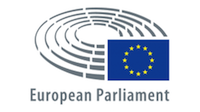Organised jointly by the Luiss School of Government and the Luiss Institute for European Analysis and Policy within the framework of the newly established Jean Monnet Centre of Excellence, the Master in European Economic Governance (MEEG) provides economists and other social scientists with in-depth knowledge of European economic developments concentrating on the way today's key institutions function and thoroughly explaining the related economic policies and regulatory aspects of the EU and the EMU.

Almost all the big and medium-sized firms operating in the EMU member states continuously interact with key European institutions. These interactions can be severely hindered if firms have insufficient knowledge of the evolution of European governance and the European regulatory framework . On the flipside, European institutions often fail to take into account the technical and country-specific instruments, causing them to inadequately assess the impact of their regulatory framework on the private sector. MEEG aims to produce full-fledged economists and experts in the field of European regulation and policy. Technical and analytical competencies acquired through the program are intended to form professionals with a comprehensive understanding of the European regulatory framework, professionals who are adept at managing relations between national institutions, companies, and European institutions.
The master also benefits from Luiss’s close interaction with the European Parliament and OFCE, the Center for Research on Applied Economics at Sciences Po in Paris, where selected groups of students have the possibility, following an internal academic selection procedure, to spend a visiting period for an internship on European economic issues. Recently the Luiss Institute for European Analysis and Policy has formed a partnership with Dezernat Zukuunft, an institute for macrofinance in Berlin.
MEEG former students hold positions both in European and Italian institutions and in the private sector. These include Analysts at the European Central Bank, Analyst at Cassa Depositi e Prestiti, Analyst at Italian Minister of Economy and Finance, Business Development at Enel Green Power, Corporate Bankers at Intesa San Paolo and researcher at BNL Servizio Studi.
The director of MEEG is Professor Valentina Meliciani.




